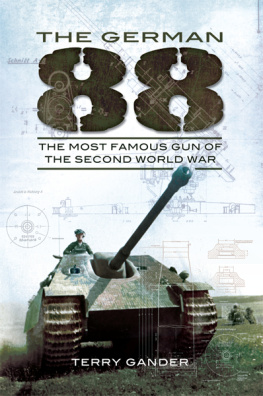THE WAR IN THE AIR
By H. G. Wells
CHAPTER I.
OF PROGRESS AND THE SMALLWAYS FAMILY
"This here Progress," said Mr. Tom Smallways, "it keeps on."
"You'd hardly think it could keep on," said Mr. Tom Smallways.
It was along before the War in the Air began that Mr. Smallways made this remark. He was sitting on the fence at the end of his garden and surveying the great Bun Hill gas-works with an eye that neither praised nor blamed. Above the clustering gasometers three unfamiliar shapes appeared, thin, wallowing bladders that flapped and rolled about, and grew bigger and bigger and rounder and rounderballoons in course of inflation for the South of England Aero Club's Saturday-afternoon ascent.
"They goes up every Saturday," said his neighbour, Mr. Stringer, the milkman. "It's only yestiday, so to speak, when all London turned out to see a balloon go over, and now every little place in the country has its weekly-outingsuppings, rather. It's been the salvation of them gas companies."
"Larst Satiday I got three barrer-loads of gravel off my petaters," said Mr. Tom Smallways. "Three barrer-loads! What they dropped as ballase. Some of the plants was broke, and some was buried."
"Ladies, they say, goes up!"
"I suppose we got to call 'em ladies," said Mr. Tom Smallways.
"Still, it ain't hardly my idea of a ladyflying about in the air, and throwing gravel at people. It ain't what I been accustomed to consider ladylike, whether or no."
Mr. Stringer nodded his head approvingly, and for a time they continued to regard the swelling bulks with expressions that had changed from indifference to disapproval.
Mr. Tom Smallways was a green-grocer by trade and a gardener by disposition; his little wife Jessica saw to the shop, and Heaven had planned him for a peaceful world. Unfortunately Heaven had not planned a peaceful world for him. He lived in a world of obstinate and incessant change, and in parts where its operations were unsparingly conspicuous. Vicissitude was in the very soil he tilled; even his garden was upon a yearly tenancy, and overshadowed by a huge board that proclaimed it not so much a garden as an eligible building site. He was horticulture under notice to quit, the last patch of country in a district flooded by new and (other) things. He did his best to console himself, to imagine matters near the turn of the tide.
"You'd hardly think it could keep on," he said.
Mr. Smallways' aged father, could remember Bun Hill as an idyllic Kentish village. He had driven Sir Peter Bone until he was fifty and then he took to drink a little, and driving the station bus, which lasted him until he was seventy-eight. Then he retired. He sat by the fireside, a shrivelled, very, very old coachman, full charged with reminiscences, and ready for any careless stranger. He could tell you of the vanished estate of Sir Peter Bone, long since cut up for building, and how that magnate ruled the country-side when it was country-side, of shooting and hunting, and of caches along the high road, of how "where the gas-works is" was a cricket-field, and of the coming of the Crystal Palace. The Crystal Palace was six miles away from Bun Hill, a great facade that glittered in the morning, and was a clear blue outline against the sky in the afternoon, and of a night, a source of gratuitous fireworks for all the population of Bun Hill. And then had come the railway, and then villas and villas, and then the gas-works and the water-works, and a great, ugly sea of workmen's houses, and then drainage, and the water vanished out of the Otterbourne and left it a dreadful ditch, and then a second railway station, Bun Hill South, and more houses and more, more shops, more competition, plate-glass shops, a school-board, rates, omnibuses, tramcarsgoing right away into London itselfbicycles, motor-cars and then more motor-cars, a Carnegie library.
"You'd hardly think it could keep on," said Mr. Tom Smallways, growing up among these marvels.
But it kept on. Even from the first the green-grocer's shop which he had set up in one of the smallest of the old surviving village houses in the tail of the High Street had a submerged air, an air of hiding from something that was looking for it. When they had made up the pavement of the High Street, they levelled that up so that one had to go down three steps into the shop. Tom did his best to sell only his own excellent but limited range of produce; but Progress came shoving things into his window, French artichokes and aubergines, foreign applesapples from the State of New York, apples from California, apples from Canada, apples from New Zealand, "pretty lookin' fruit, but not what I should call English apples," said Tombananas, unfamiliar nuts, grape fruits, mangoes.
The motor-cars that went by northward and southward grew more and more powerful and efficient, whizzed faster and smelt worse, there appeared great clangorous petrol trolleys delivering coal and parcels in the place of vanishing horse-vans, motor-omnibuses ousted the horse-omnibuses, even the Kentish strawberries going Londonward in the night took to machinery and clattered instead of creaking, and became affected in flavour by progress and petrol.
And then young Bert Smallways got a motor bicycle....
Bert, it is necessary to explain, was a progressive Smallways.
Nothing speaks more eloquently of the pitiless insistence of progress and expansion in our time than that it should get into the Smallways blood. But there was something advanced and enterprising about young Smallways before he was out of short frocks. He was lost for a whole day before he was five, and nearly drowned in the reservoir of the new water-works before he was seven. He had a real pistol taken away from him by a real policeman when he was ten. And he learnt to smoke, not with pipes and brown paper and cane as Tom had done, but with a penny packet of Boys of England American cigarettes. His language shocked his father before he was twelve, and by that age, what with touting for parcels at the station and selling the Bun Hill Weekly Express, he was making three shillings a week, or more, and spending it on Chips, Comic Cuts, Ally Sloper's Half-holiday, cigarettes, and all the concomitants of a life of pleasure and enlightenment. All of this without hindrance to his literary studies, which carried him up to the seventh standard at an exceptionally early age. I mention these things so that you may have no doubt at all concerning the sort of stuff Bert had in him.
He was six years younger than Tom, and for a time there was an attempt to utilise him in the green-grocer's shop when Tom at twenty-one married Jessicawho was thirty, and had saved a little money in service. But it was not Bert's forte to be utilised. He hated digging, and when he was given a basket of stuff to deliver, a nomadic instinct arose irresistibly, it became his pack and he did not seem to care how heavy it was nor where he took it, so long as he did not take it to its destination. Glamour filled the world, and he strayed after it, basket and all. So Tom took his goods out himself, and sought employers for Bert who did not know of this strain of poetry in his nature. And Bert touched the fringe of a number of trades in successiondraper's porter, chemist's boy, doctor's page, junior assistant gas-fitter, envelope addresser, milk-cart assistant, golf caddie, and at last helper in a bicycle shop. Here, apparently, he found the progressive quality his nature had craved. His employer was a pirate-souled young man named Grubb, with a black-smeared face by day, and a music-hall side in the evening, who dreamt of a patent lever chain; and it seemed to Bert that he was the perfect model of a gentleman of spirit. He hired out quite the dirtiest and unsafest bicycles in the whole south of England, and conducted the subsequent discussions with astonishing verve. Bert and he settled down very well together. Bert lived in, became almost a trick riderhe could ride bicycles for miles that would have come to pieces instantly under you or metook to washing his face after business, and spent his surplus money upon remarkable ties and collars, cigarettes, and shorthand classes at the Bun Hill Institute.









